Our plates reveal a lot about us. About our history, our beliefs, our tastes, our conditioning, but also our gender. Meat consumption today crystallizes many fantasies, at the intersection of politics, ecology, health, and gender issues. What is the reality?
After investigating in May 2020 on the diet of the French during confinement, we are publishing this new part of our observatory, on a topic that is dear to us as it impacts both our health and the environment.
“Meat is probably the most symbolically charged food. Eating meat is about asserting dominance over nature. It has long been a product of hunting, as opposed to gathering. Meat thus symbolizes action, strength, energy – characteristics attributed to men…” recognizes essayist Nora Bouazzouni, author of Steaksism: Ending the Myth of the Vegan and the Meat-Eater (Nouriturfu Editions) in an interview given to L’ADN.
Men consume more meat than women: 61.2 g per day for men, 34.1 g per day for women. And the proportion of people who consume too much red meat compared to official recommendations (advising not to exceed 500 g of red meat per week) is almost twice as high among men (41%) as among women (24%).
This is why we specifically focused on meat consumption by men in France.
The Label of “Meat-Lover”, a Right-Wing Marker?
Are “meat-lovers” mostly right-wing? That’s what our survey reveals.
56% of men surveyed self-identify as “meat-lovers”, and 54% of men who self-identify as “very meat-loving” position themselves ideologically on the right, or far-right.
40% of them are daily beef consumers.
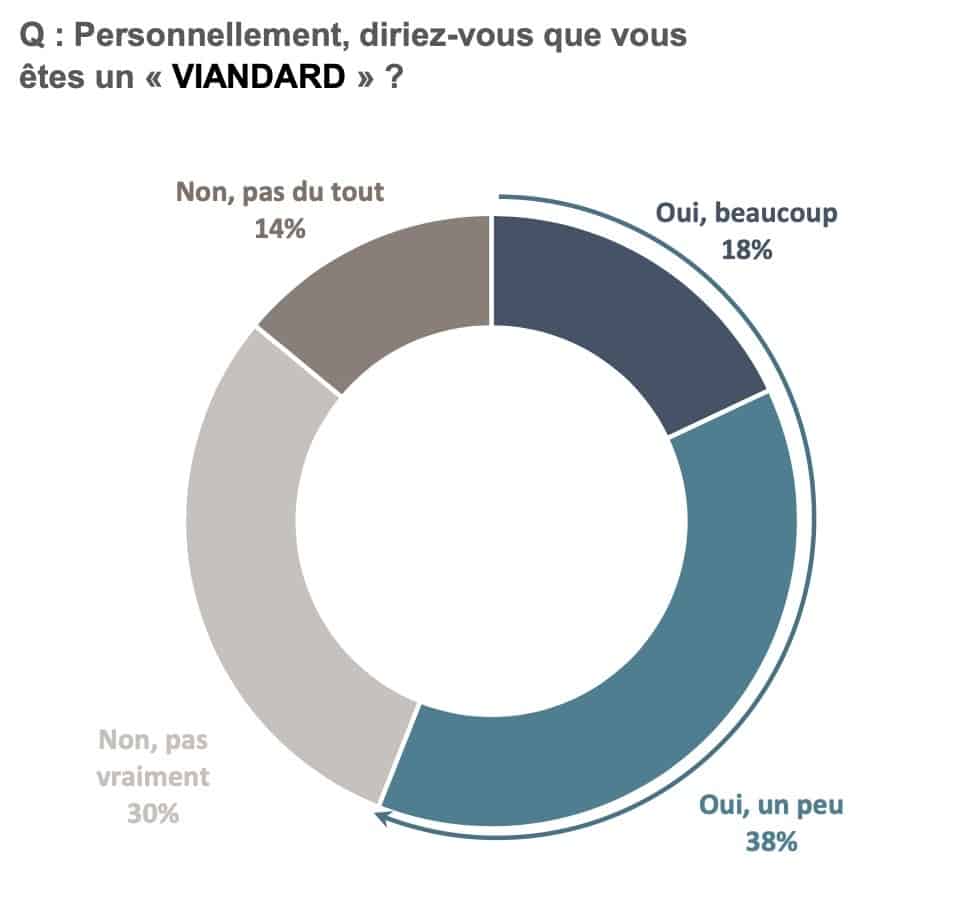
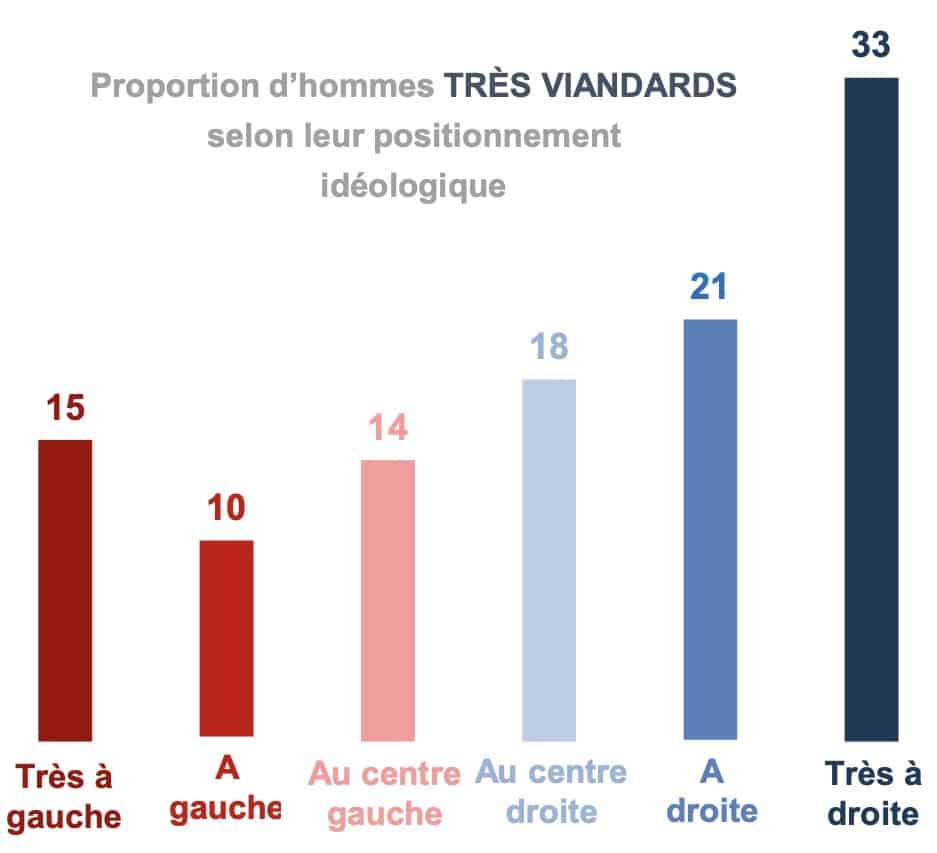
François Kraus’s Perspective from IFOP
For men influenced by identity discourses valuing this symbol of strength and power, claiming a love for meat can be interpreted as a form of rejection of a “politically correct food perspective” which, in their view, challenges both the “meaty tradition” of their territory and the “virility” of men attached to a very meat-heavy culinary heritage.
Frequency of Consumption, Political Sensitivity, and Feminism
Would you say you eat meat without ever worrying about the frequency of your consumption? 41% of respondents respond positively to this question, and this figure rises to 54% and 53% among National Rally and Reconquest supporters, respectively.
14% of respondents declare they try to consume as little as possible. Among men who cast a Green Party ballot in the first round of the 2022 presidential election, this figure rises to 27%.
However, only 32% of “very feminist” men eat meat “without worrying about the frequency.”
“You eat meat…but never worry about the frequency”
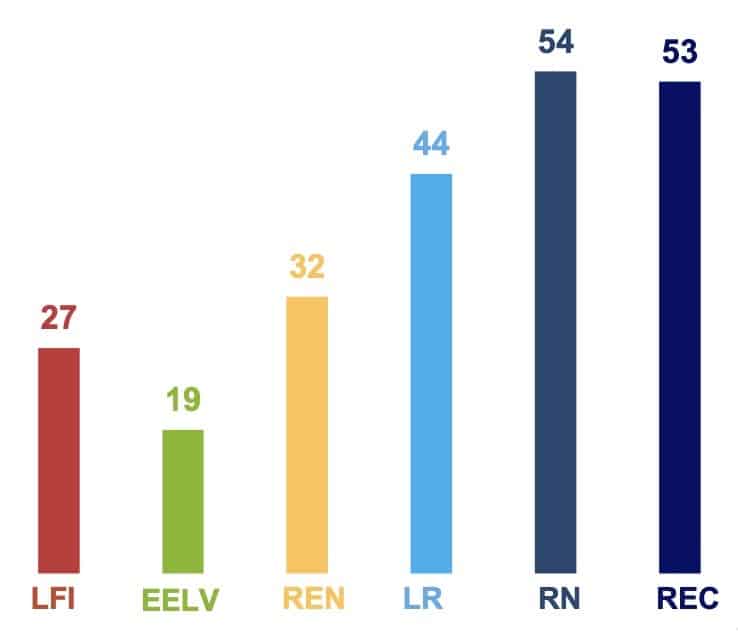
“You eat meat… but you try to eat as little as possible”
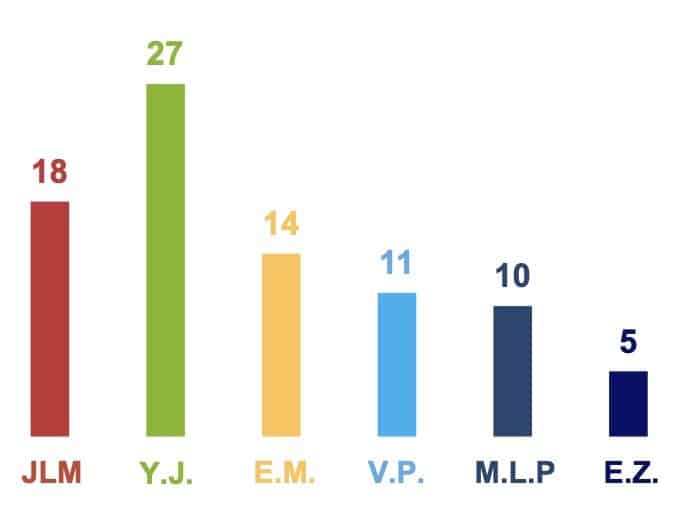
François Kraus’s Perspective from IFOP
In a male diet still largely dominated by the “meat-eating dogma” – barely 1% of men identify as vegan or vegetarian – moderating meat consumption appears as a very marginal reflex outside the most eco-progressive fringe of the male demographic: the French seem generally insensitive to discourses condemning the harms of a hyper-meaty diet on the environment and health.
The Meat-Eating Dogma Still Largely Dominates Men’s Diet
Carnism is a concept developed by social psychologist and author Melanie Joy. It refers to a dominant ideology, according to which we are unaware that we choose (in developed countries) to eat meat without physiological necessity.
This common belief that you should eat meat every day (for nutritional reasons, to be healthy…) seems persistent. Thus, to the question “under normal circumstances, how often do you eat meat (e.g., beef, pork, veal, poultry, deli meats…)?” 25% of respondents answer every day or almost every day, and 27% 4 to 5 times a week.
At the top of meats consumed by French men: poultry with 87% weekly consumption, beef with 79%, and pork with 76%.
Under normal circumstances, how often do you eat meat?
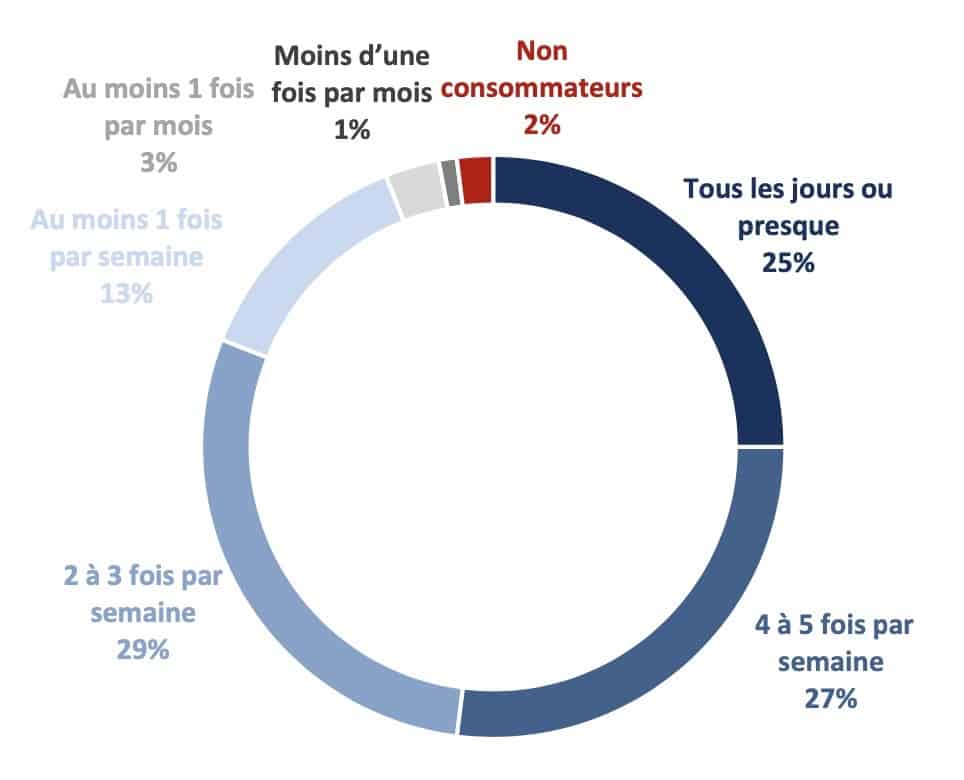
In the past 7 days, how often have you eaten…?
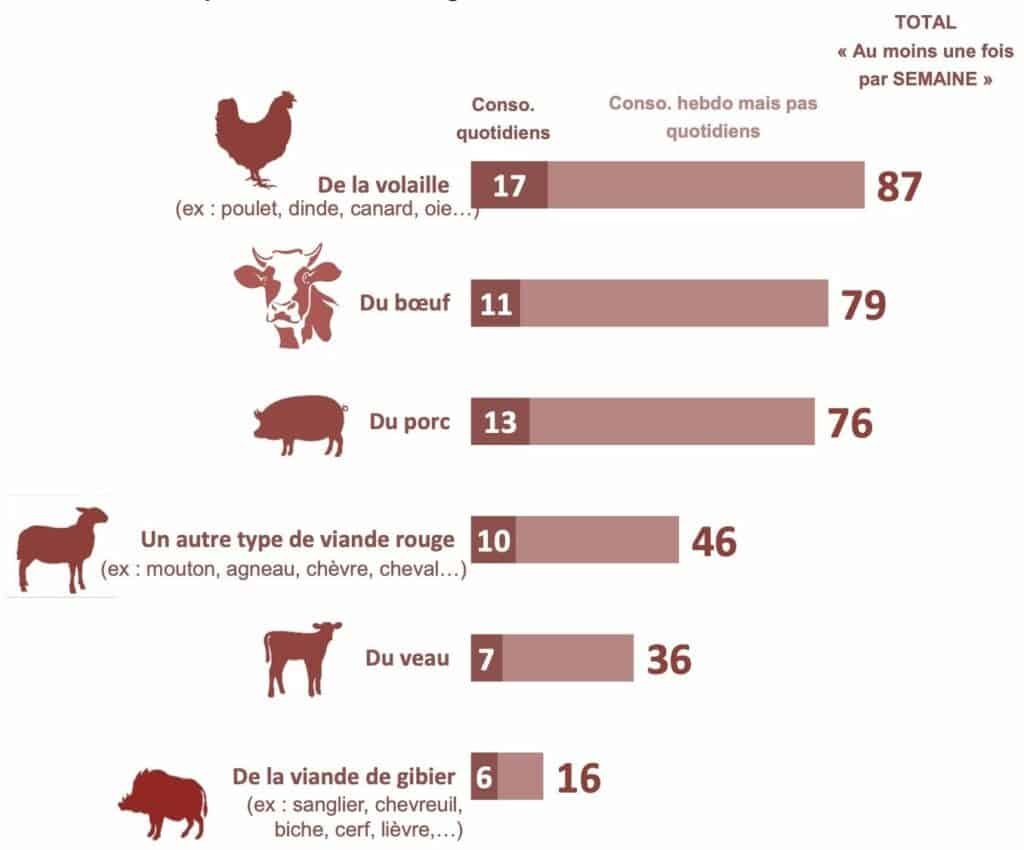
François Kraus’s Perspective from IFOP
In a male diet still largely dominated by the “meat-eating dogma” – barely 1% of men identify as vegan or vegetarian – moderating meat consumption appears as a very marginal reflex outside the most eco-progressive fringe of the male demographic: the French seem generally insensitive to discourses condemning the harms of a hyper-meaty diet on the environment and health.
Heavy consumers of red meat adhere much more to sexist stereotypes
Ifop focused on the profile of men who consume beef daily, particularly their degree of adherence to sexist stereotypes according to different categories: rape culture and tolerance for sexual violence, misogynistic view of gender relations within the couple, misogynistic view of women’s roles in society, “traditionalist” conception of the family, misogynistic attitude in gender relations within the couple.
47% of daily beef consumers agree with the statement “In a couple, it is normal for the woman to do more household chores than the man,” compared to 16% of men who do not eat it or eat it once a week.
4% of French people adhere to all the sexist stereotypes below. This figure rises to 10% among men positioning themselves far left and 20% among hunters.
Furthermore, 40% of men adhering to the dozen sexist stereotypes tested by Ifop eat beef “every day or almost every day.”
Personally, do you agree or disagree with each of the following statements?
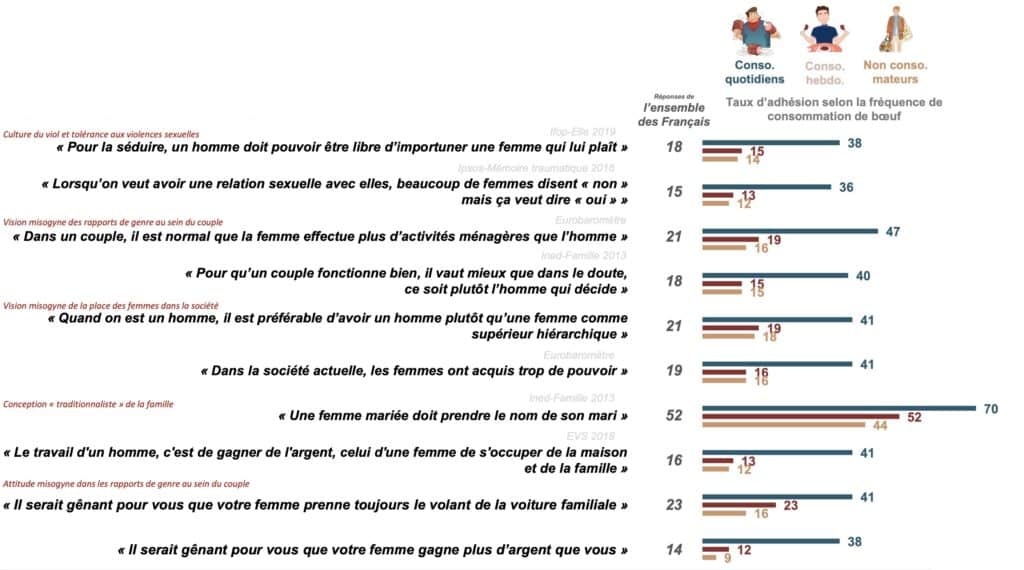
The perspective of François Kraus from ifop
In light of these results, intense red meat consumption can be interpreted as a wish to “put on a show” for men seeing the ingestion of a “man’s food” as a way to socially fulfill their gender roles: their logic being that they reinforce their masculinity by ingesting the virile properties of a food still very socially coded as masculine. However, this mindset goes hand in hand with a deeply misogynistic system of thinking in their view of gender relations.
The barbecue, a practice to be de-virilized?
78% of men surveyed take care of the barbecue more often than their partners.
46% of men share the idea that they handle the barbecue better than women. This figure rises to 66% among heavy beef consumers.
Interestingly for the future: a majority of French men, 62%, consider it necessary to de-virilize the consumption of meat cooked on the barbecue.
Which household member takes care of the barbecue, plancha, grilling, etc.?
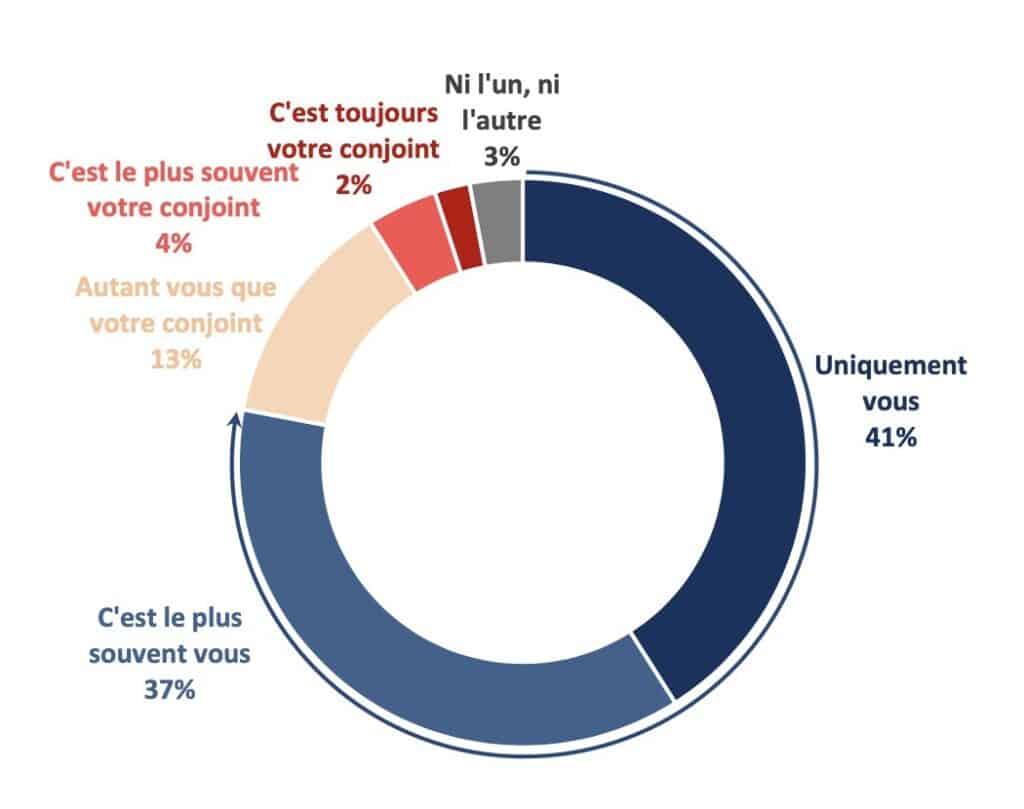
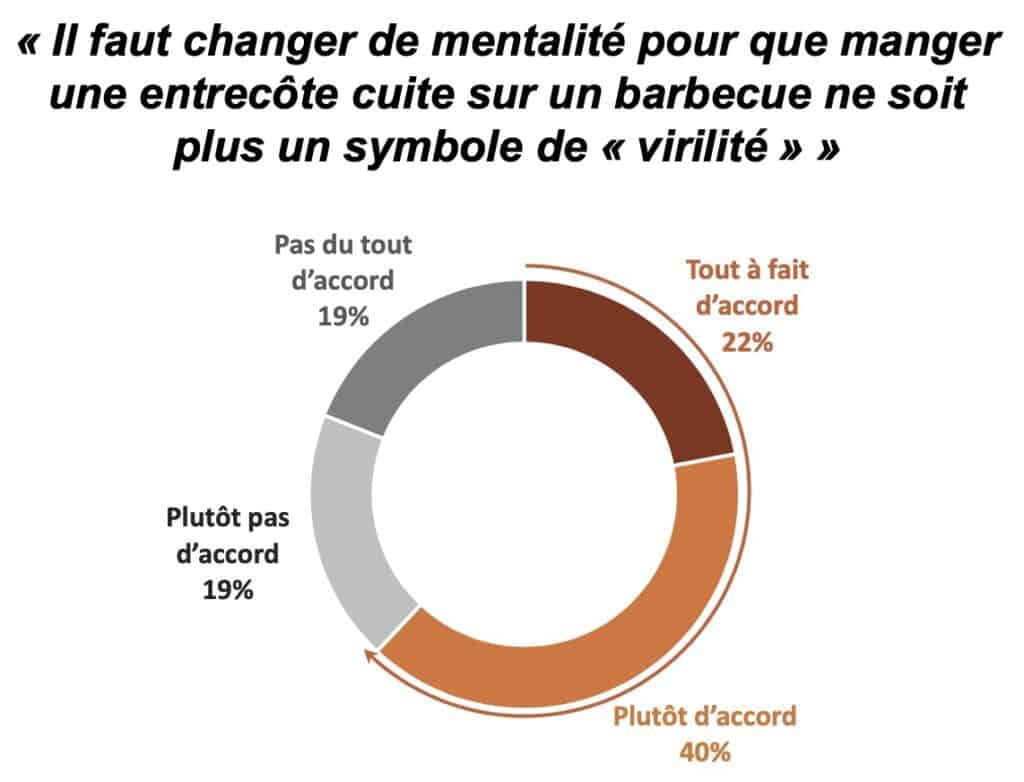
The perspective of François Kraus from ifop
In light of this study, we cannot but note the gap between the overreaction on social networks to the comments made by Sandrine Rousseau and the much more nuanced reality of men’s opinions on the subject, particularly because many men – including those on the right – admit the need to challenge this “virile totem” that would be the barbecue…
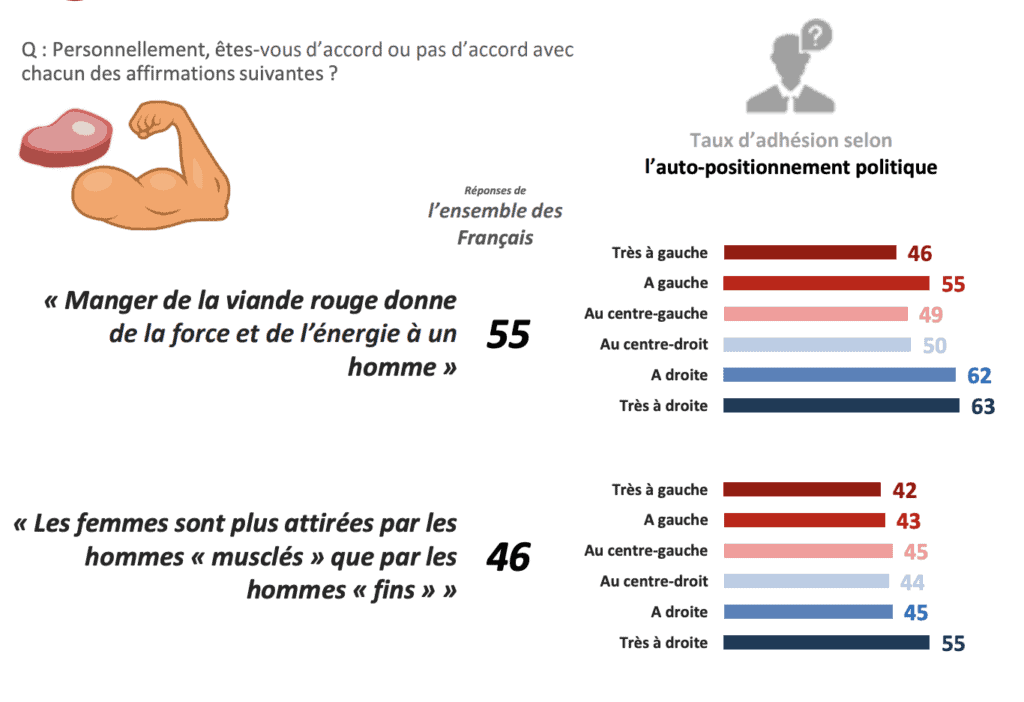
The hyper-sexism indicator: 67% of French people adhere to at least one of the 10 sexist stereotypes
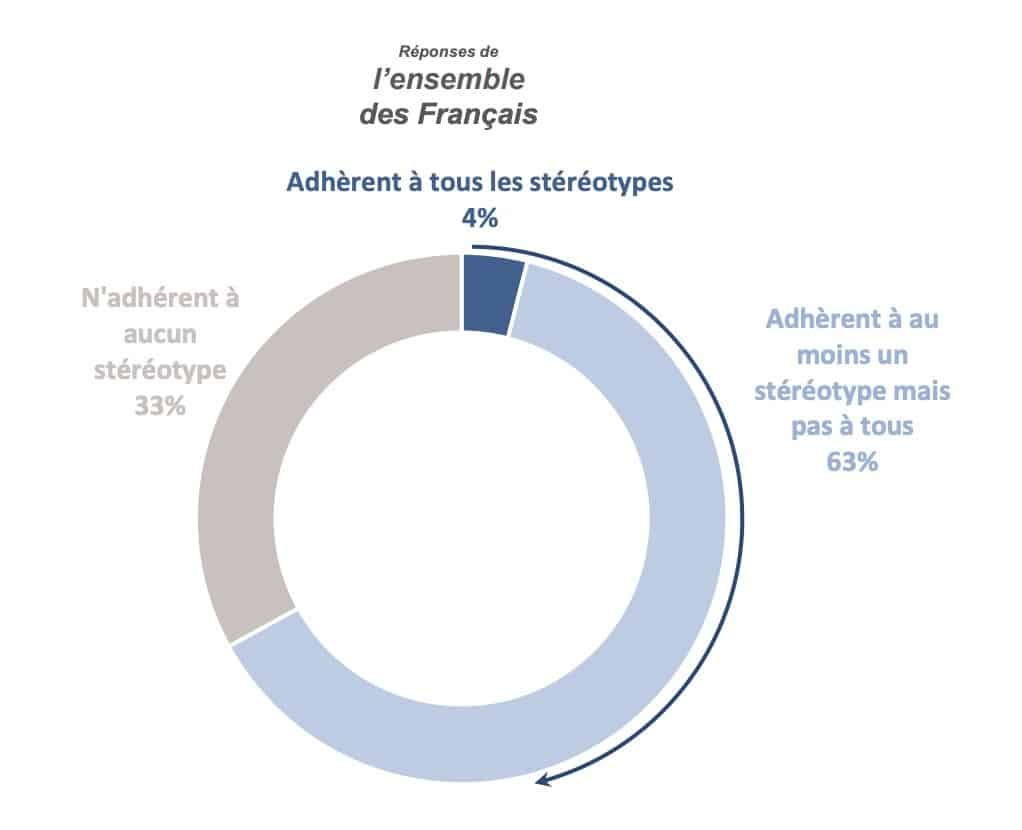
In the end, the analysis of the profile of “hyper-sexist” men, that is, those who adhere to all the sexist stereotypes tested by Ifop (4% of men), confirms the idea that a heavily meat-based diet often goes hand in hand with a conservative view of women’s roles in society.
Thus, there is a high rate of “hyper-sexist” men among hunters (20%), heavy consumers of game (20%), and beef (15%).
The perspective of François Kraus from IFOP
If the general attitude towards meat can be translated into a specific worldview (« Weltanschauung ») (see vegetarians / flexitarians), it is not sufficiently discriminating to influence the degree of societal conservatism among the French. However, the overconsumption of red meat or game, especially when associated with certain socio-cultural characteristics (working-class categories, rurality, low education level…), goes hand in hand with a very conservative attitude towards women, the world, and the planet. Caution, asserting that an excessive love for meat would be intrinsically linked to rampant sexism would be too simplistic, contradicted by this survey which notably shows a high number of men who are both meat enthusiasts and opposed to sexism. But in certain popular, rural, or identity-oriented environments, displaying a taste for this symbol of strength and power is indeed an expression of a form of hegemonic masculinity, likely responding to a need to symbolically assert virility often challenged by relative social failure.



